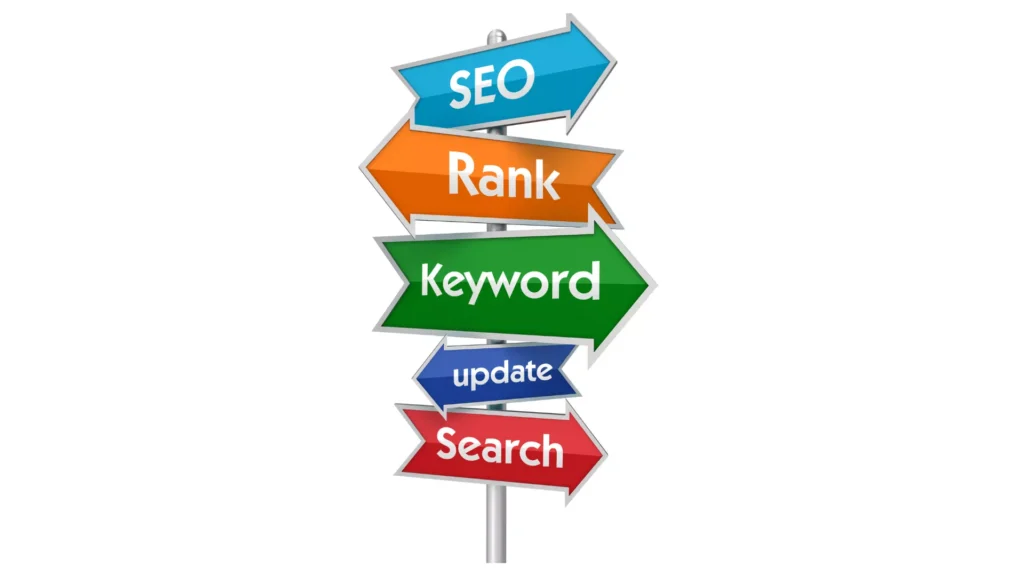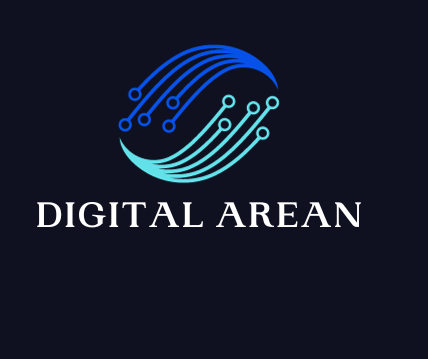Uncovering the Power of On-Page SEO: Top 10 Benefits
In the fast-paced world of digital marketing, staying ahead of the curve is essential.
When it comes to optimizing your website for search engines, power of on-page SEO is a fundamental strategy that can make a world of difference.
But what exactly is on-page SEO, and why is it so crucial for your online presence?
In this blog, we’ll delve into the top 10 benefits power of on-page SEO and how it can boost your website’s performance in search engine results.
So, let’s explore the world of on-page SEO and discover how it can transform your online presence.

Elevate Your Website
This phrase implies the act of raising or improving the overall quality, visibility, and performance of a website. Through on-page SEO, the blog suggests that you can take your website to a higher level of success and effectiveness.
What is on power of ON Page SEO ?
This refers to the practice of optimizing individual web pages to improve their search engine rankings and organic traffic.
It involves optimizing various on-page elements, such as content, meta tags, images, and more.
Table of Contents
Benefit 1 : Improved Search Engine Ranking
Improved search engine ranking is one of the primary Benefits of on-page SEO.
It refers to the practice of optimizing your web pages to appear higher in the search engine results pages (SERPs) when users enter relevant search queries.
Here’s a brief explanation of this crucial aspect of on-page SEO:
Enhanced Visibility:
When you invest in on-page SEO, you make changes to your website’s content, meta tags, and structure to align with search engine algorithms.
This alignment enhances your website’s visibility, ensuring that it ranks higher when users search for keywords related to your content or business.
Increased Organic Traffic:
Websites that appear on the first page of search results receive a significant share of organic traffic.
By improving your search engine ranking through on-page SEO, you increase the likelihood of attracting more visitors who are actively searching for what you offer.
Competitive Advantage:
Higher search engine rankings give you a competitive edge in your industry.
Your website is more likely to be noticed by users, which can result in increased market share, brand recognition, and credibility.
Trust and Authority:
Websites that rank well are often perceived as more trustworthy and authoritative by users.
When your site appears near the top of search results, it can foster trust and credibility, leading to higher conversion rates and customer trust.
Cost-Effective Marketing:
Compared to many other digital marketing methods, on-page SEO is cost-effective.
Once your website is optimized, maintaining and updating it requires minimal investment, making it an excellent long-term strategy for businesses.
Benefit 2: Enhanced User Experience
Enhancing user experience is a pivotal aspect of on-page SEO.
It involves optimizing your website to ensure that visitors have a positive and seamless interaction with your content and pages.
Here’s a detailed breakdown of how enhanced user experience is achieved through on-page SEO:
Page Load Speed:
One of the critical factors affecting user experience is the speed at which your web pages load.
On-page SEO involves optimizing images, scripts, and other elements that can slow down page load times. Faster loading pages reduce bounce rates and keep visitors engaged.
Mobile-Friendliness:
With the increasing use of mobile devices for web browsing, ensuring that your website is responsive and mobile-friendly is essential.
On-page SEO may involve making your site adaptable to various screen sizes and devices, providing a smooth experience for mobile users.
Content Relevance:
On-page SEO encourages you to create content that is not only optimized for search engines but also relevant and valuable to your target audience.
This helps in keeping visitors engaged, as they find the information they were looking for on your site.
Navigation and Site Structure:
A well-organized and easy-to-navigate website is crucial for enhancing user experience.
On-page SEO can involve structuring your content logically, creating user-friendly menus, and using clear calls-to-action (CTAs) to guide visitors through your site.
Internal Linking:
On-page SEO often includes the use of internal links to connect related content on your website.
This aids in easy navigation, keeps users on your site longer, and helps them discover more of your valuable content.
Readability and Accessibility:
Ensuring that your content is easy to read and understand is part of enhancing user experience.
This includes using clear headings, legible fonts, and providing alternative text for images to improve accessibility.
Reduction of Intrusive Elements:
On-page SEO may involve reducing or optimizing intrusive elements like pop-up ads or interstitials that can disrupt the user’s experience.
These can negatively impact user engagement and satisfaction.
Secure Browsing:
Implementing security measures such as HTTPS, which encrypts data between the user’s browser and your server, enhances user trust and data security.
Consistency and Branding:
Maintaining a consistent design and branding throughout your website creates a cohesive user experience. This helps users feel more familiar and comfortable with your site.
Error Handling:
Proper on-page SEO includes managing and fixing broken links, ensuring that error pages (404s) are user-friendly and providing helpful information to users when something goes wrong.
Benefit 3: Better Content Quality
One of the key benefits of on-page SEO is the improvement of content quality.
This aspect focuses on creating and optimizing content that not only pleases search engines but, more importantly, provides value to your website’s visitors.
Here’s a brief explanation of the importance of better content quality in the context of on-page SEO
Relevance and Value:
On-page SEO encourages the creation of content that is highly relevant to your target audience.
This means understanding your audience’s needs, preferences, and pain points and tailoring your content to address those aspects.
By doing so, you offer valuable information or solutions, increasing the likelihood of visitor engagement and trust.
Keyword Optimization:
On-page SEO involves thorough keyword research and optimization.
Integrating relevant keywords into your content ensures that your material aligns with what users are searching for.
This improves the chances of your content being discovered by the right audience.
Readability and Clarity:
On-page SEO emphasizes creating content that is easy to read and understand.
Clear headings, concise paragraphs, and a logical flow enhance the user’s experience, making your content more engaging and accessible.
Quality Over Quantity:
Rather than focusing solely on the quantity of content, on-page SEO places emphasis on producing high-quality, informative, and well-researched content.
This not only attracts visitors but also keeps them on your site, reduces bounce rates, and encourages them to explore more of your offerings.
Enhanced Trust and Credibility:
Websites that consistently produce high-quality content are often seen as more trustworthy and authoritative.
This trust factor can lead to increased user confidence in your brand, products, or services, ultimately resulting in higher conversion rates.
User Engagement:
Content that is informative, engaging, and valuable tends to capture and retain user attention.
On-page SEO practices help structure content to be more engaging, incorporating visuals, multimedia, and interactive elements when appropriate.
Reduction of Duplicate Content:
On-page SEO encourages the identification and elimination of duplicate content, which can harm your site’s search engine ranking and user experience.
By addressing duplicate content issues, you ensure that visitors are presented with unique and valuable information.
Benefit 4: Increased Organic Traffic

When your website ranks higher in search engine results, it becomes more visible to potential visitors.
This increased visibility translates to higher organic traffic. As more people find your site through search, you’ll reduce your reliance on paid advertising, saving you money in the long run.
Benefit 5: Targeted Audience Reach
On-page SEO allows you to tailor your content to specific keywords and phrases that your target audience is searching for.
This precision targeting ensures that your website is seen by the right people, leading to better conversion rates and higher-quality leads.
Benefit 6: Better Page Loading Speed
Page load speed is a critical factor in both SEO and user experience. Optimizing on-page elements like images, scripts, and server performance can significantly improve page loading times, reducing bounce rates and keeping visitors on your site longer.
Benefit 7: Increased Trust and Credibility
Websites that appear in the top positions of search results are often perceived as more trustworthy and credible by users.
By optimizing your website for search engines, you enhance your online reputation, making visitors more likely to trust your content and offerings.
Benefit 8: Cost-Effectiveness
Compared to other digital marketing methods, on-page SEO is relatively cost-effective.
Once your website is optimized, the ongoing maintenance and improvements require minimal investment, making it an excellent long-term strategy for businesses of all sizes.
Benefit 9: Competitive Edge
In a crowded online marketplace, on-page SEO gives you a competitive edge.
By consistently optimizing your website and content, you can stay ahead of competitors and maintain a strong online presence, even in saturated industries.
Benefit 10: Measurable Results
One of the significant advantages of on-page SEO is that its results are measurable.
You can use various tools and analytics to track your progress, monitor keyword rankings, and assess the impact of your efforts.
This data-driven approach allows you to refine your strategies and make data-backed decisions.






